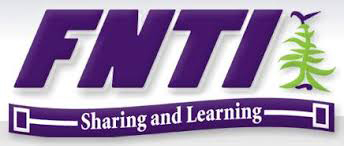Sarah Williams
Beaver Staff
Recently, Ontario’s Health Minister Christine Elliott announced a $28 million investment in provincial midwifery services.
According to The First Nation’s Technical Institute (FNTI) Vice-President Dr. Umar Keoni Umangay, this investment, “couldn’t come at a better time.”
The college in Tyendinaga is currently working on providing a B.Sc. in Indigenous Midwifery, a program that will increase culturally-safe midwifery services and support those who are currently at the forefront of that sector.
Suzanne Brant, President of FNTI, spoke with the Beaver about the importance of the new B.Sc. in Indigenous Midwifery and the role that program will play within the community.
“Having a program like this provides the accreditation or the recognition for those people that are directly involved with childbirth, and so having an institute like FNTI being able to recognize that is beneficial to the community. For us, that’s what we’re here to do-provide training as well as recognition for that training,” said Brant, adding, “This announcement will assist those organizations that provide midwifery. It assists them to continue our traditional practices of bringing life into the world.”
Brant was careful to note that the program will satisfy the requirements of a mainstream health sciences program while drawing on a wealth of Indigenous practices and knowledge.
To date there is no other Indigenous institute offering an Indigenous midwifery program.
“The focus of this program will be very much on Indigenous practices, though they’ll still be learning all the pieces that are in a normal health science program,” added Brant.
For example, Brant stated there will be teachings around certain cultural practices that are tied in with the design of the program.
“There will be an emphasis on the use of medicinal herbs, such as goldthread, which babies are washed with as soon as they’re born, as well as certain ceremonies that are done to introduce the baby both to their family and the world,” she explained.
“These are all things that you would not find in a mainstream midwifery program,” asserts Brant.
She also noted last year FNTI had a 93 per cent graduation rate. Brant attributes this to Indigenous cultural components that are an integral part of the programs at the college.
“People that come here, they have a foundational piece and they start to learn who they are and experience that through the program,” said Brant.
Apart from believing that “learning is healing and healing is learning,” Brant also points out students have a lot to teach each other, and that each one brings valuable life experiences to the college.
FNTI’s Indigenous Midwifery program is slated to begin September 2020.

